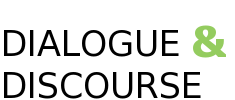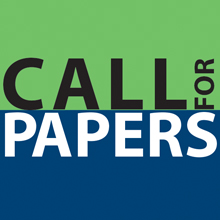:::::::::::::::::::::::::::::::::::
Through the corpora list
::::::::::::::::::::::::::::::::::::
TAL Journal: 2016 Volume 57-3
Call for papers
Topic: NLP for learning and teaching (Link)
Foreign Language Learning and Teaching is one of the fields where the introduction of information and communication technologies (ICT) has proved particularly fruitful. It is thus no wonder that Computer-Assisted Language Learning (CALL) has been among the first, from the 1960’s, to integrate insights and techniques from Natural Language Processing (NLP) to create intelligent computer-assisted learning environments. Since then, various other fields and disciplines have also incorporated NLP into electronic learning environments to support self-directed learning, blended learning or classroom teaching. NLP has overall contributed to the improvement of learning environments, and to the development of research in the related fields. It has allowed for the improvement of integrated systems, not to say the widening of issues in the related fields.
Today, online learning tools, Massive Open Online Courses (MOOCs), Small Private Online Courses, Computer-Assisted Pronunciation Teaching (CAPT) systems, Computer-Assisted Instruction systems for mathematics, sign language learning applications, or Intelligent Tutoring Systems (ITS), among many others, are heavy “consumers” of NLP, or about to become it.
Integrating NLP into these systems enables to consider, process and reproduce for learning purposes aspects of the content of linguistic data, to create more advanced educational resources, but also to make the communication with the learner more relevant in a teaching context.
The aspects of NLP most frequently involved are analysis of learners’ responses, feedback provision, automated generation of exercises, and the monitoring of learning progress. Other aspects related to learning and teaching also involve NLP, such as plagiarism detection, writing support, use of learner corpora or parallel corpora to detect and resolve errors, or adaptive learning systems integrating ontologies for the associated domains.
The contribution of NLP to these systems is generally regarded as positive. It must be recognized, however, that only a handful of such applications have made it to the general public as a commercial software. In most cases, the systems never left the laboratory and have a limited range of use, sometimes only as a proof of concept. Is this due, as many believe, to the high production cost of NLP resources? Is it because of the current quality of NLP results? Is it a consequence of the integration strategy of NLP into these applications?
The goal of this issue of Traitement Automatique des Langues dedicated to “NLP for learning and teaching” is to summarize the contribution of NLP to instructional systems, both at a theoretical level (opportunities, limitations, integration methods) and at the level of learning systems – or parts of systems – production.
Authors are invited to submit papers on all the aspects of the implementation of NLP into Computer-Assisted Instruction (CAI) systems for a given discipline, as well as useful tools for this task, in particular regarding, but not limited to, the following issues and tasks:
- Contribution of (written or spoken) NLP to CAI systems.
- Needs and requirements of NLP techniques and methods for instructional systems design.
- Instructional design methodology for NLP-based CAI systems.
- Presentation of systems and learning tools involving NLP.
- Collection and use of language corpora for pedagogical purposes using NLP.
- Use of learner corpora and error annotation using NLP.
- Automated evaluation of learner writing and short answers using NLP.
- (Semi-)automated diagnostic assessment and remedial help.
- Design and setting up of activities involving NLP.
- Language resources for NLP-based instruction and learning.
- Automated selection of text resources based on pedagogical criteria.
- Development, presentation and use of linguistic and metalinguistic information for pedagogical purposes.
- Learner modelling based on his linguistic output.
- Approaches and methods for plagiarism detection.
Position papers and state of the art papers are also welcome.
Language
Papers can be written in French or in English. Submissions in English will only be accepted if at least one of the authors is not a native speaker of French.
Submission guidelines
Submitted papers should be 20 to 25 pages long. Any dispensation regarding length should be previously discussed with the guest editors.
Authors are invited to submit their paper as a PDF file on http://tal-57-3.sciencesconf.org/ , by clicking on “Soumission d’un article”, after having previously registered and logged in on SciencesConf.org.
The TAL Journal follows a double-blind peer-reviewing process. All submissions must be carefully anonymized.
Stylesheets are available online on the journal website: http://www.atala.org/IMG/zip/tal-style.zip .
Important dates
- Paper submission deadline: 28 October, 2016
- Notification to the authors after first review: 17 February, 2017
- Notification to the authors after second review: 28 April, 2017
- Publication: September 2017
Journal
Traitement Automatique des Langues is an international journal published since 1960 by ATALA (Association pour le traitement automatique des langues) with the support of CNRS. It is now published online, with an immediate open access to published papers, and annual print on demand. This does not change its editorial and reviewing process.
Guest editors
- Georges Antoniadis, Université Grenoble-Alpes, LIDILEM, France
- Piet Desmet, KU Leuven, iMinds-ITEC, Belgium
Editorial Board
- Véronique Aubergé, LIG, Université Grenoble-Alpes, France
- Yves Bestgen, IPSY, Université Catholique de Louvain, Belgique
- Eric Bruillard, STEF, ENS Cachan, France
- Cristelle Cavalla, DILTEC, Université Sorbonne Nouvelle, France
- Thierry Chanier, LRL, Université Blaise Pascal de Clermont Ferrand, France
- Françoise Demaizière, Université Paris Diderot, France
- Philippe Dessus, LSE, Université Grenoble-Alpes, France
- Sylvain Detey, Waseda University, Japon
- Walt Detmar Meurers, Universität Tübingen, Allemagne
- Maxine Eskenazi, Carnegie Mellon University, USA
- Cédrick Fairon, CENTAL, Université Catholique de Louvain, Belgique
- Dan Flickinger, LinGO Laboratory, Stanford University, USA
- Nuria Gala, LIF, Aix-Marseille Université, France
- Sylviane Granger, CECL, Université Catholique de Louvain, Belgique
- Natalie Kübler, CLILLAC-ARP, Université Paris Diderot, France
- Jean-Marc Labat, LIP6, Université Pierre-et-Marie-Curie, France
- Patrice Pognan, PLIDAM, INALCO, France
- Mathias Schulze, University of Waterloo, Canada
- Isabel Trancoso, Instituto Superior Técnico, Portugal
- Stefan Trausan-Matu, Universitatea Politehnica din Bucuresti, Roumanie
- Elena Volodina , University of Gothenburg, Suède
- Virginie Zampa, LIDILEM, Université Grenoble-Alpes, France
- Michael Zock, LIF, Aix-Marseille Université, France
*************************************************
Georges ANTONIADIS
Professeur d’informatique-linguistique
Directeur du Dpt Sciences du Langage & FLE
Responsable du master Industries de la Langue
UFR LLASIC / Laboratoire LIDILEM
Université Grenoble-Alpes, bâtiment Stendhal
CS 40700
38058 Grenoble cedex 9
Tél. : +33/0 4 76 82 77 61 Fax : +33/0 4 76 82 41 26


